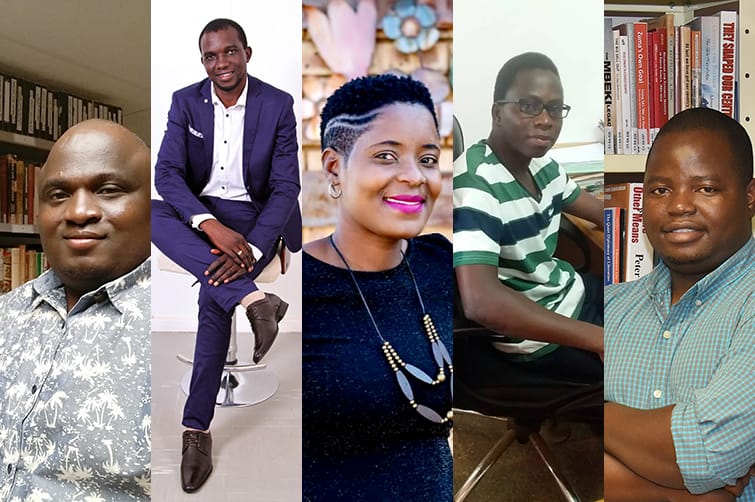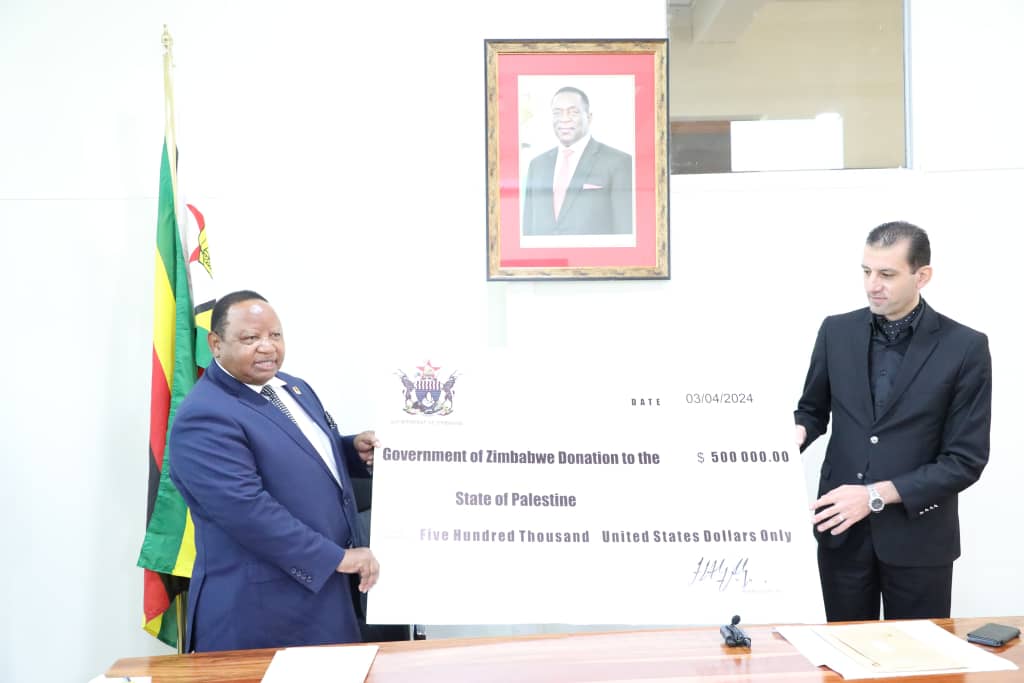
By Josiah Mucharowana and Taruberekera Masara in Pretoria
PRETORIA: Three Zimbabweans based at the University of Free State International Studies Group (ISG) have won prestigious international fellowship awards in varied agricultural research programmes.
The three are Dr Sibanengi Ncube, Dr Victor Gwande and Dr Joyline Kufandirori. The awards were presented by the American Council of Learners Societies on the 19th of May in the Free State Province of South Africa.
The Fellowship runs under the African Humanities programme funded by the Carnegie Corporation of New York.
It comes with US$20k stipend given individually.
In an interview one of the award winners Dr Dr Sibanengi Ncube said his winning work was based on Zimbwebwe’ s tobbacco industry.
” Interestingly, my winning proposal is based on pursuing the roots of Zimbabwe’s agro-based economy using the case of the history of the tobacco industry since the end of World War 2,’ he said.
“My colleague looks at the development of secondary industrialisation since the same time while the last one focuses on conflicts in the farms after the land reform programme’, he added.
Dr Ncube, is an economic historian whose research interests are in, histories of commodities, agricultural policies, international commodity trade and rural economies’ interactions with global value networks.
He is yet to publish, Beyond the State: Global, Regional and Local Relations in Zimbabwe’s Tobacco Industry since 1947.
The awards had two other African nationals, one Zambian Hyden Munene and a Ghanaian DrJoseph Kachim,
Speaking upon conferement of the awards Prof Fred Hendricks, AHP Associate Director for Southern Africa said: “This is indeed a remarkable accomplishment – all the more outstanding because we received close to 500 applications for our 45 postdoctoral fellowships this year,”
“It is unique in the history of the AHP to award so many scholars from one relatively small programme and is an accolade to the concentration of talent developing at the University of the Free State”,he added.
For the recepients of the award, it allows an academic year of free teaching and other duties to either revise their dissertations for publication or for their first major research project after obtaining their PhDs.
As fellows, they are also eligible for additional benefits such as residential stays for writing, manuscript development workshops, and publication support.
Dr Ncube hailed the programme as as opening to more academic doors in the future.
“The award does not only bring money for books and media to enhance my work, but it also makes me an American Council of Learned Societies’ African Humanities Program Fellow, in itself a very important addition to my academic CV,” he said.
According to the American Council of Learned Societies, the goals of their African Humanities Programme are to encourage and enable the production of new knowledge and new directions for research, to strengthen the capacity of early career researchers and faculty at African universities, and to advance the humanities by establishing networks for scholarly communication across Africa and with Africanists worldwide.
Prof Ian Phimister, Head ISG scholars said it was a proud moment for selected scholars of the program.
“They can use the scholarship funds to travel to archives across Africa for their research. Some of them already have book contracts in place, which means that they can now move ahead towards publication very quickly.” he said The ISG, he said is proud to be awarded five of these fellowships in one year.
” It is yet another feather in the cap of the ISG, which has established itself as a key contributor to the academic and research effort in the SADC region and further afield, ‘ he said.
The ISG was formed in 2012, after the need was identified to recruit senior research professors who would not only lead by research example and refereed publication, but also attract and recruit high-calibre postgraduate students and postdoctoral fellows to the UFS, driving the research-led transformation of the university as a whole.
After national and international advertisements, followed by a rigorous selection process, graduate students and postdoctoral fellows are recruited in the field of Southern and Central African Studie.
They usually engage with wider regional and global processes where comparative world history is also catered for.
The young scholars come from across the globe – from places such as Oxford, Cambridge, Edinburgh and Minnesota, to institutions closer to home, such as the Universities of Zambia, Botswana, Pretoria, and Stellenbosch University.
Their study fields encompass a wide variety of disciplines, such as anthropology, development economics, history, politics, and sociology.
Just over two-thirds of the PhD students and postdoctoral fellows are black and more than half of them are female.
“This cohort of exceptionally clever young people drawn from throughout South and Southern Africa, as well as from elsewhere, has been hard at work for the past seven years or so.
Twenty of them have already passed through the ISG’s programme, many of them subsequently taking up posts at renowned institutions such as the London School of Economics, the University of Kent, the University of St Andrews, and also here at the UFS.
The fact that they are proving themselves to be internationally competitive is particularly gratifying,” says Prof Phimister.
Scholars publish in renowned national and international journals during their tenure at the UFS.
The ISG’s completion rate for PhD theses is within three to three and a half years – roughly half of the national average of seven years.
“As an economic historian who was introduced to Professor Ian Phimister’s works in both my honours and master’s courses, I needed no persuasion when an opportunity arose for me to work under him in the ISG,” says Dr Ncube, one of the AHP recipients.
“Words really fail me when I try to describe the value of my time at the UFS International Studies Group.
It is an academic incubator – a home-away-from-home environment characterised by unprecedented collegiality across the board.”






